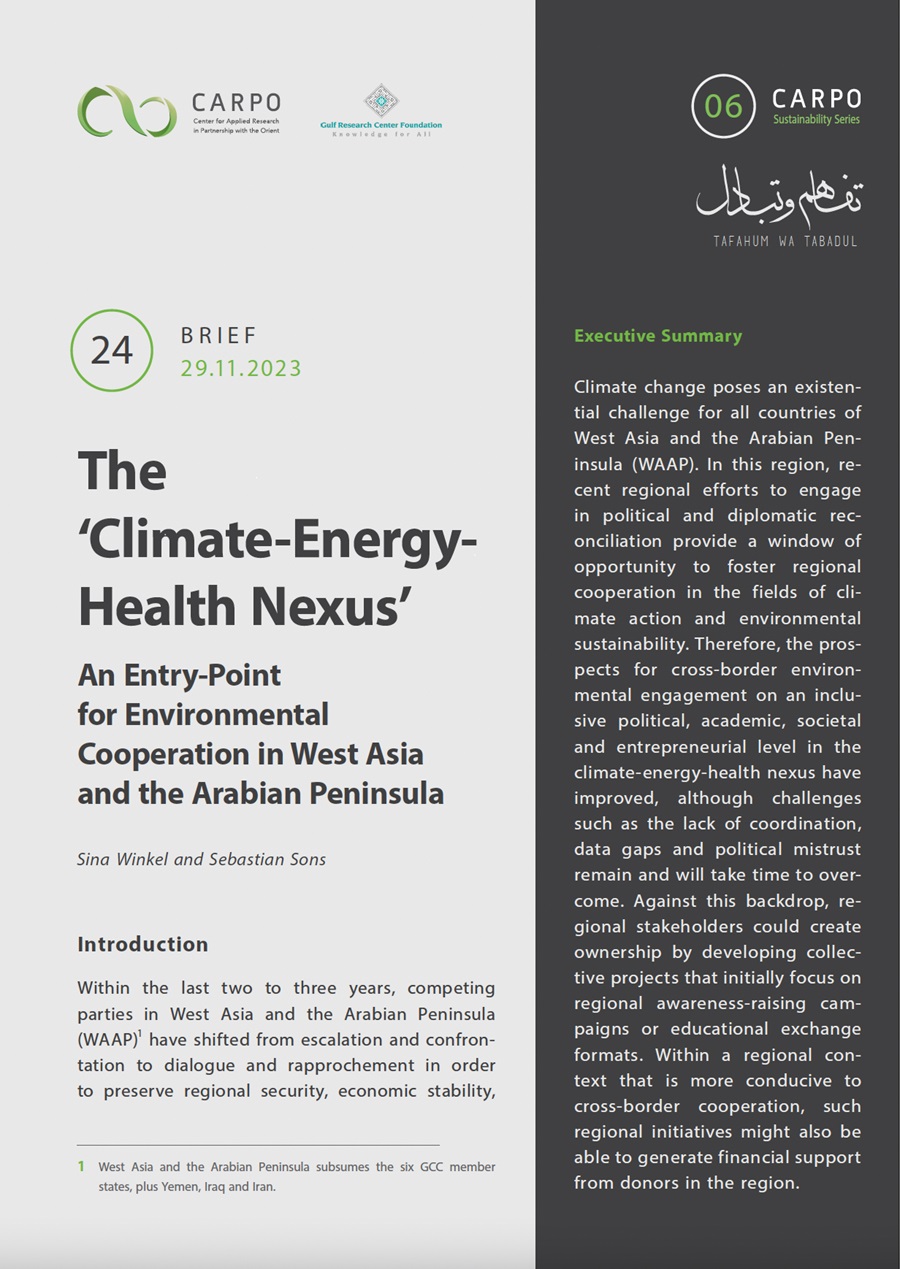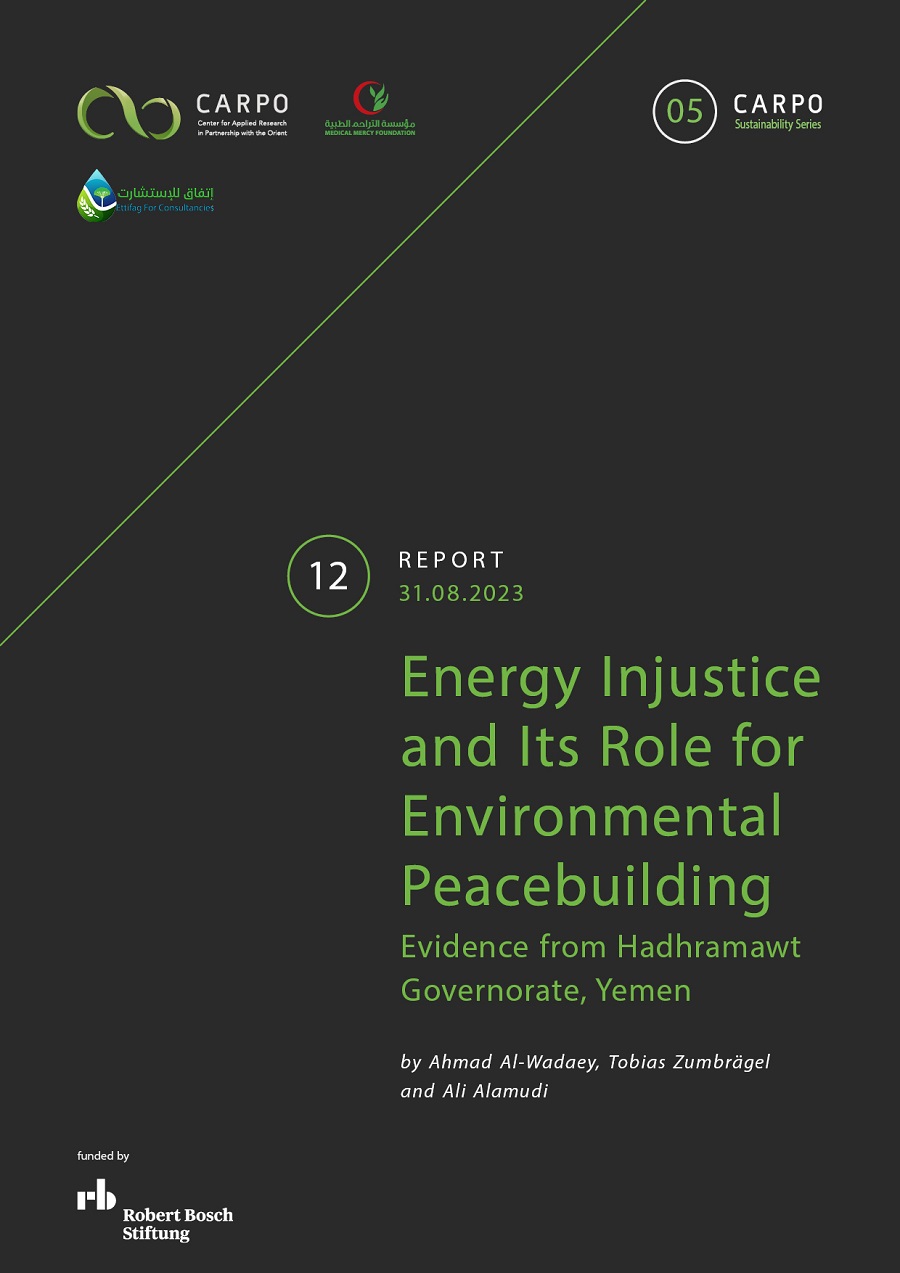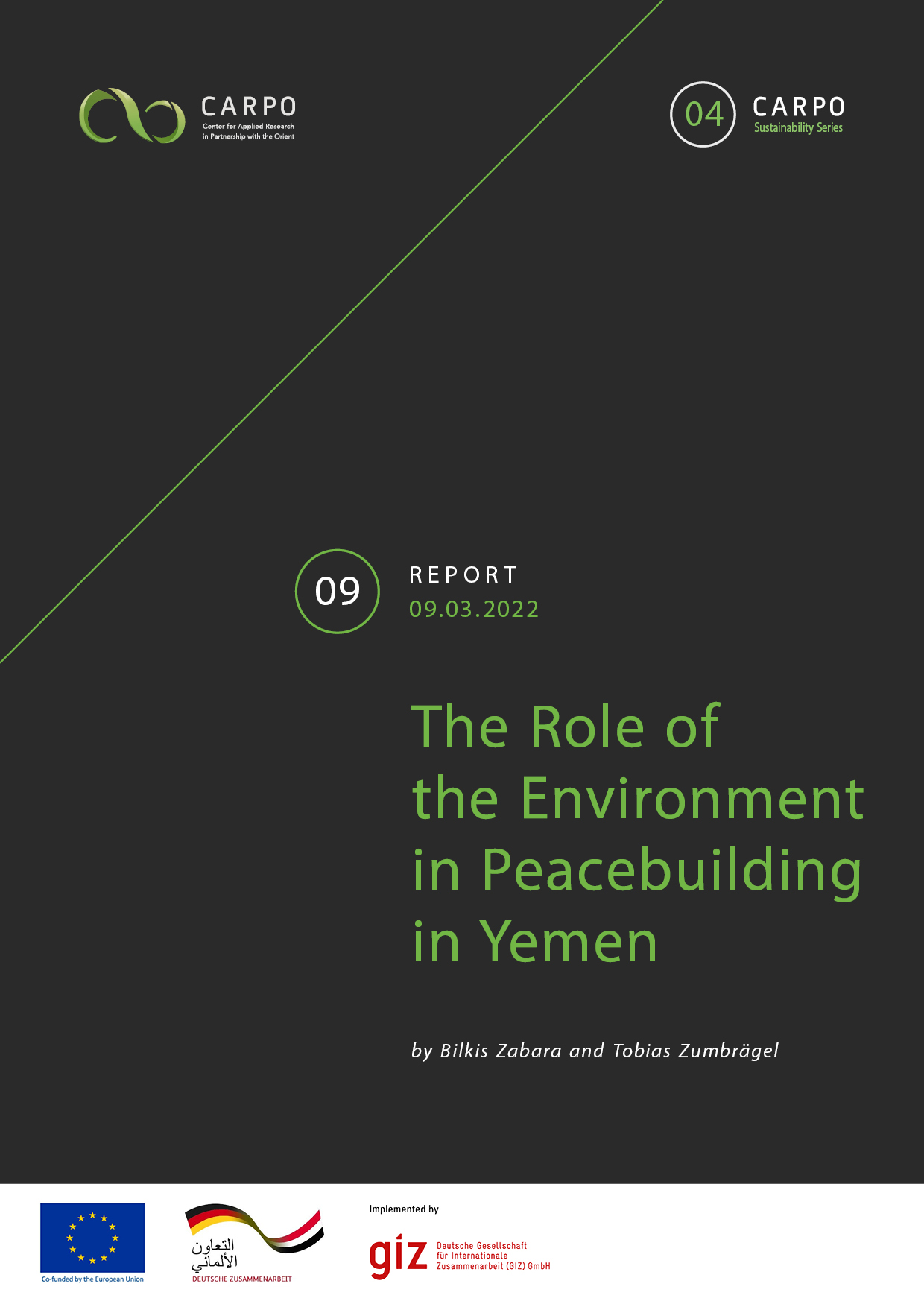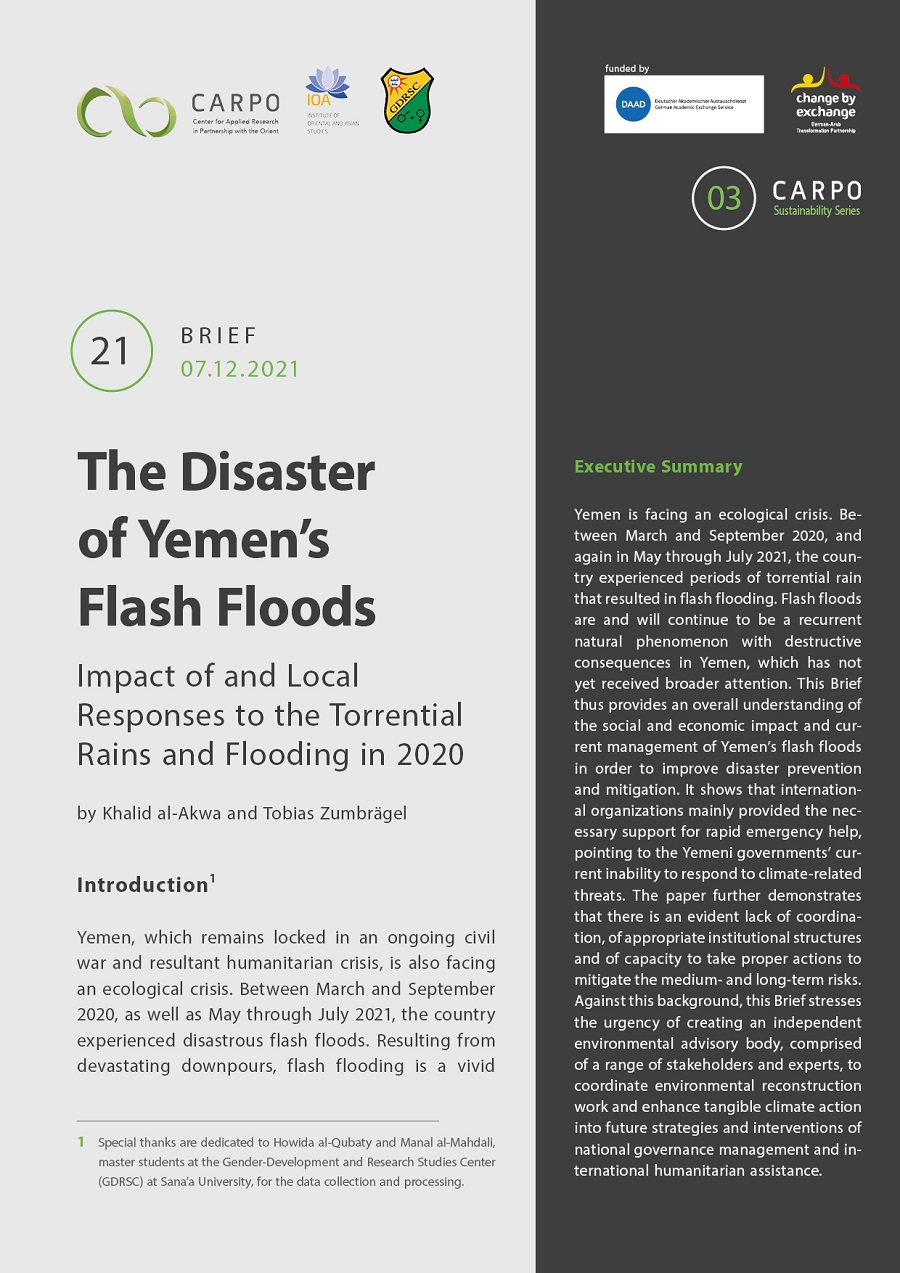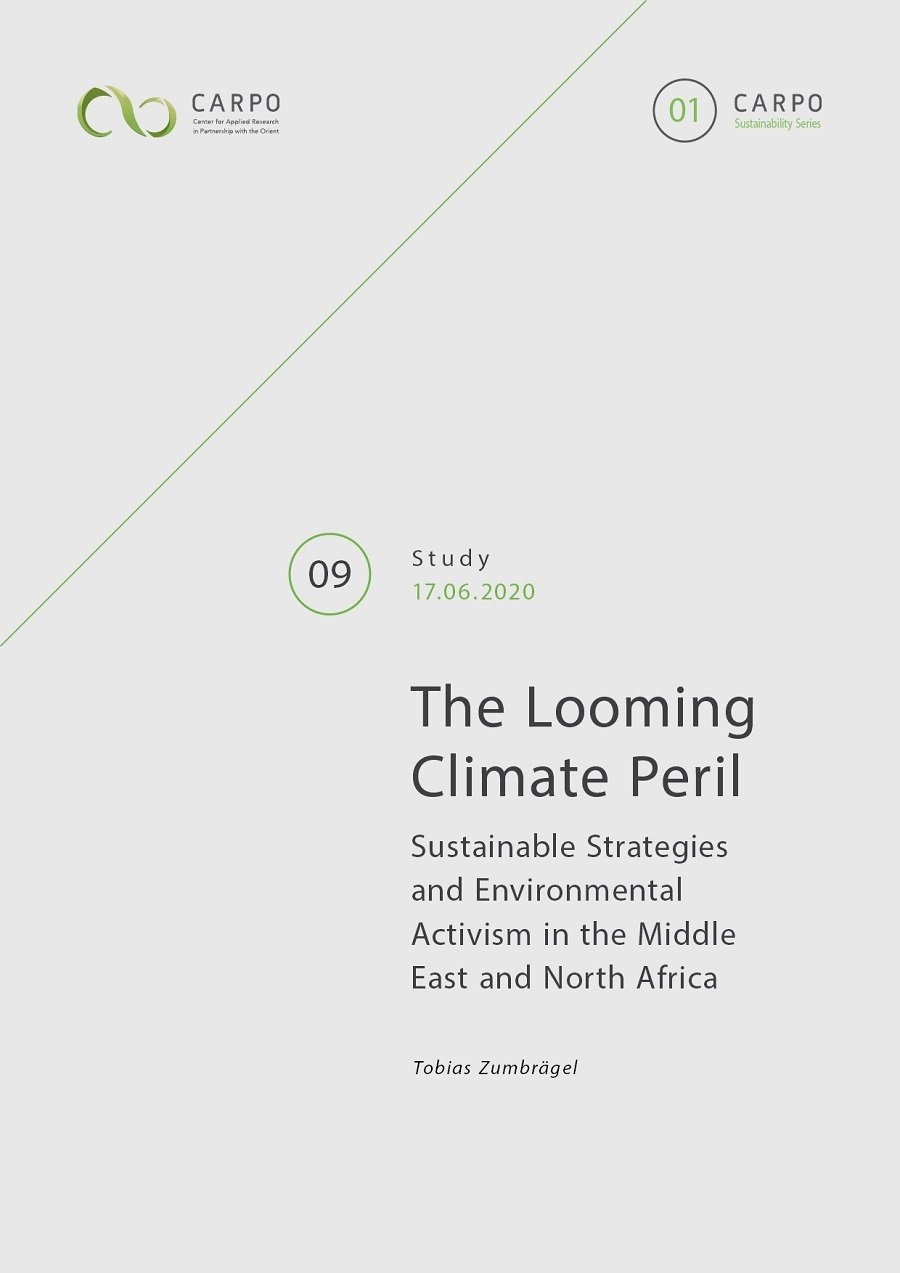An Entry-Point for Environmental Cooperation in West Asia and the Arabian Peninsula by Sina Winkel and Sebastian Sons Based on insights obtained through the Tafahum wa Tabadul project, the authors discuss how recent geopolitical dynamics in West Asia and the Arabian Peninsula may pave the way towards cross-border environmental engagement on an inclusive political, academic, […]
Read more...Category: CARPO Sustainability Series
Energy Injustice and Its Role for Environmental Peacebuilding
Ahmad Al-Wadaey, Tobias Zumbrägel and Ali Alamudi This Report discusses the crucial but understudied impact of oil extraction industries on local communities and the environment in Yemen’s Hadhramawt governorate. By combining conceptual approaches of energy justice and the environmental peacebuilding literature, it provides a novel perspective on how environmental pollution via the oil industry in […]
Read more...The Role of the Environment in Peacebuilding in Yemen
by Bilkis Zabara and Tobias Zumbrägel This Report addresses the relationship between violent conflict and environmental governance in Yemen. It translates the concept of environmental peacebuilding to the case of Yemen, where it has not received broader attention in terms of post-conflict reconstruction and reconciliation efforts. The study compares six different governorates, namely Sana’a, Dhamar, […]
Read more...The Disaster of Yemen’s Flash Floods. Impact of and Local Responses to the Torrential Rains and Flooding in 2020
by Khalid al-Akwa and Tobias Zumbrägel Between March and September 2020, and again in May through July 2021, Yemen experienced periods of torrential rain that resulted in flash flooding. Flash floods are and will continue to be a recurrent natural phenomenon with destructive consequences in Yemen, which has not yet received broader attention. This Brief […]
Read more...Post COVID-19: A Potential for Green Recovery in the Arab Gulf States
by Aisha Al-Sarihi The novel coronavirus pandemic has disrupted the GCC’s focus on environmental sustainability projects, as shoring up economies and protecting human health have become top priorities for governmental countermeasures. This Brief argues that associating COVID-19 economic recovery packages with measures aimed to safeguard the environment and tackle climate change, towards a so-called ‘green […]
Read more...The Looming Climate Peril. Sustainable Strategies and Environmental Activism in the Middle East and North Africa
by Tobias Zumbrägel Taking the viewpoint of ‘political ecology’, this first issue of the newly created CARPO Sustainability Series highlights the social and political implications of sustainable transformation across the broader Middle East and North Africa (MENA) region. Overall, it aims to achieve four goals: (a) to provide a comprehensive overview of existing research and […]
Read more...
